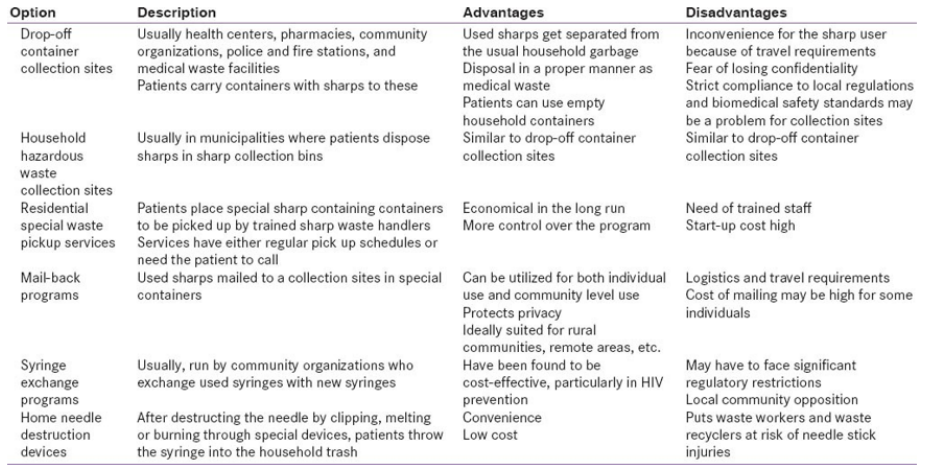Lupine Publishers| Journal of Dentistry and Oral Health
Medical Advancements: A Boon with Risks?
Diabetes was, is and will be a major cause of concern in the healthcare sector. The control of diabetes has been a mission since a long time all over the world. The use of the glucometer has made life easier for the common man. However the lack of knowledge regarding the disposal of the glucose strips and needles has also become a matter of concern. A multi-nation study reflected that about 46.9% to 67.6% of diabetics disposed the sharps into the household bins and that less than 10% used, specific containers [1]. In similar studies, improper disposal of sharps was found to be as high as 80-90% [2,3]. A study from Pakistan showed that more than 90% patients discarded them into the household bin [4]. According to the Indian Council of Medical Research, India Diabetes study circulated in 2011, revealed that about 62.4 million people in India were diabetics [5]. This makes India, the home to a huge diabetic inhabitant.
Thereby, the seriousness of the situation not only limits to diagnosing and treating the diabetic population, but it also further includes the knowledge about the proper diabetic self-care with the diet and self-monitoring of blood glucose levels forming the important part of the same. With this being said, the disposal of the waste generated from such self-monitoring techniques becomes a part of it. Thus, if neglected, it can cause substantial damage to the health of the population as well as it may reflect a marked loss to the economy, further increasing its burden. Table 1 below shows the various sharp waste disposal techniques followed [6]. According to the Environmental Protection Agency, syringes (needles) and lancets are medical wastes called “sharps.” Sharps can be hazardous to those handling garbage, if the sharps are thrown in the regular waste. ”Sharps boxes” are recommended for home use. Various pharmacies sell sharps boxes at a reasonable price tag and also will allow you to return the boxes when they are full [7,8].
Hence, always use a sharps box for sharps disposal. Your physician may help to learn about your local disposal options and procedures. Never to re-cap your syringes before you dispose of them. In case you do not have a regular sharps box, use a hard (puncture-proof) non-clear container for disposing used clipped or un-clipped syringes and lancets. If you choose to clip the syringes, use a device that traps the clipped points in a puncture-proof compartment. Properly dispose of your syringes and lancets when traveling or bring your used sharps home for disposal [7,8]. Do not drop your used syringes or lancets into the regular trash. Do not cut off syringe needles with scissors or break off the needles. The needle could break off as you are cutting it and could hurt you or someone else. Do not use clear plastic bottles for syringe disposal as children or drug users may see the syringes and try to open the bottle. Do not put plastic bottles filled with syringes/lancets in recycle bin [7]. Therefore. it becomes very important to educate the individual about proper waste disposal of such sharps that are used at home to prevent any cross infection or any re-use of such materials in any manner.
Read More About Lupine Publishers Journal of Dentistry and Oral Health Please Click on Below Link: https://lupine-dentistry-oral-health-care.blogspot.com/


No comments:
Post a Comment
Note: only a member of this blog may post a comment.